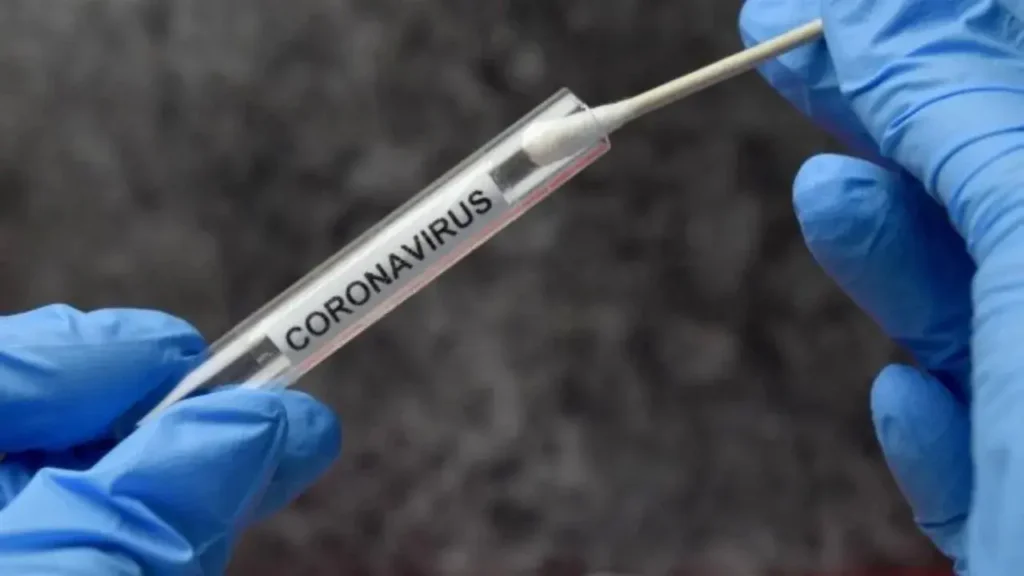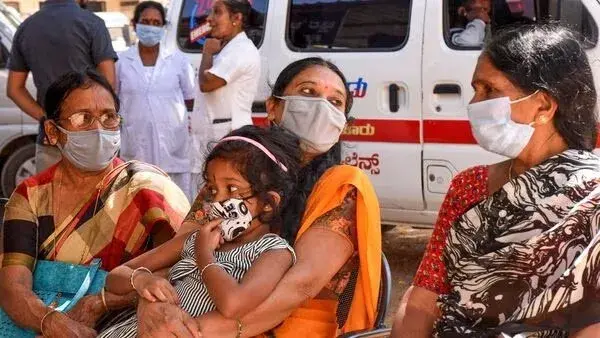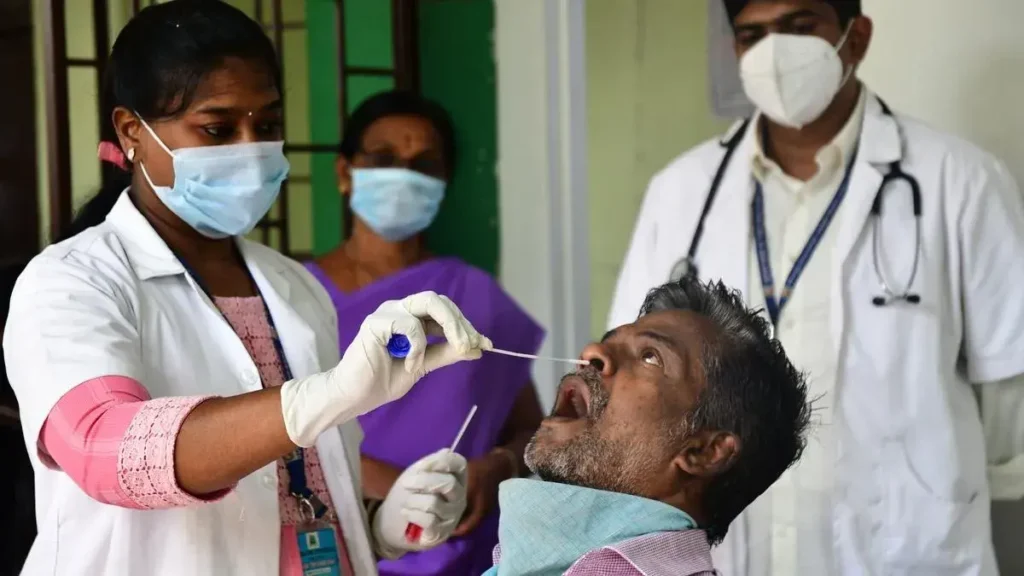India Sees Uptick in COVID-19 Cases: Active Infections Near 4,000, Deaths Reported Across Key States
India is witnessing a steady rise in COVID-19 infections, with active cases reaching 3,961 as of Monday, June 2—a jump of 566 cases from the previous day, according to data from the Ministry of Health and Family Welfare (MoHFW). The recent surge is driven primarily by states like Kerala, Maharashtra, and Delhi, which are reporting the highest case numbers. Since the start of the year, the country has registered 32 COVID-related deaths, including four in the last 24 hours. One fatality each was reported from Delhi, Kerala, Maharashtra, and Tamil Nadu. The deceased include a 22-year-old woman from Delhi with a history of post-tuberculosis complications and a 44-year-old man from Maharashtra suffering from acute respiratory distress and aortic valve problems. While Kerala confirmed another death, specific details are awaited. Delhi Records Steepest Daily Spike; Tamil Nadu, Karnataka Also Report Fatalities Delhi saw the most significant daily rise in active infections among major states, adding 47 new cases and logging one death. Tamil Nadu, with 189 active cases, reported the passing of a 25-year-old man with underlying bronchial asthma and acute kidney complications. Karnataka, currently reporting 253 active cases, recorded a fresh fatality, while Uttar Pradesh reported two deaths and has 157 active cases. In total, 16 states and Union Territories have recorded COVID-related deaths in 2025. However, the majority of cases remain mild, with limited hospital admissions. Kerala Leads in Caseload; Maharashtra, West Bengal Also on High Alert Kerala continues to report the highest number of active COVID-19 cases at 1,435, rising from 1,336 the previous day. Maharashtra follows with 506 active cases, and Delhi with 483. West Bengal has also seen a surge, reporting 331 active infections. Other notable figures include: Gujarat: 338 Karnataka: 253 Tamil Nadu: 189 Uttar Pradesh: 157 Rajasthan: 69 States like Madhya Pradesh (23), Haryana (28), and Odisha (12) have recorded smaller increases. In the last 24 hours, 203 patients have recovered, pushing the total number of recoveries and migrations this year to 2,188. Authorities Urge Caution, Not Panic Health experts and officials maintain that the situation is under control, emphasizing that most new cases are mild and manageable at home. Dr. Rajiv Behl, Director General of the Indian Council of Medical Research (ICMR), reassured the public that while increased vigilance is necessary, there’s no immediate cause for alarm. The rise in cases coincides with the detection of new Omicron sub-variants—LF.7, XFG, JN.1, and NB.1.8.1—identified in genome sequencing studies from western and southern India. These have been classified by the World Health Organization as “Variants Under Monitoring,” indicating they don’t currently pose a significant global threat. Preparedness Measures in Place as Precaution In response, state health departments—particularly in Delhi, Maharashtra, and Kerala—are ramping up hospital readiness and reviewing medical supply logistics. Citizens, especially vulnerable groups such as the elderly and those with pre-existing health issues, are being encouraged to wear masks in crowded or poorly ventilated settings. Experts stress that while the virus is spreading faster due to more contagious but less severe sub-variants, preventive strategies such as timely testing, vaccination, and community awareness remain key to containing its impact. Though the overall caseload is still far lower than during peak waves, the recent tenfold increase over two weeks underscores the need for continued monitoring, public cooperation, and proactive measures to avoid another significant outbreak. Source: Economic Times Photo Credit: iStock






